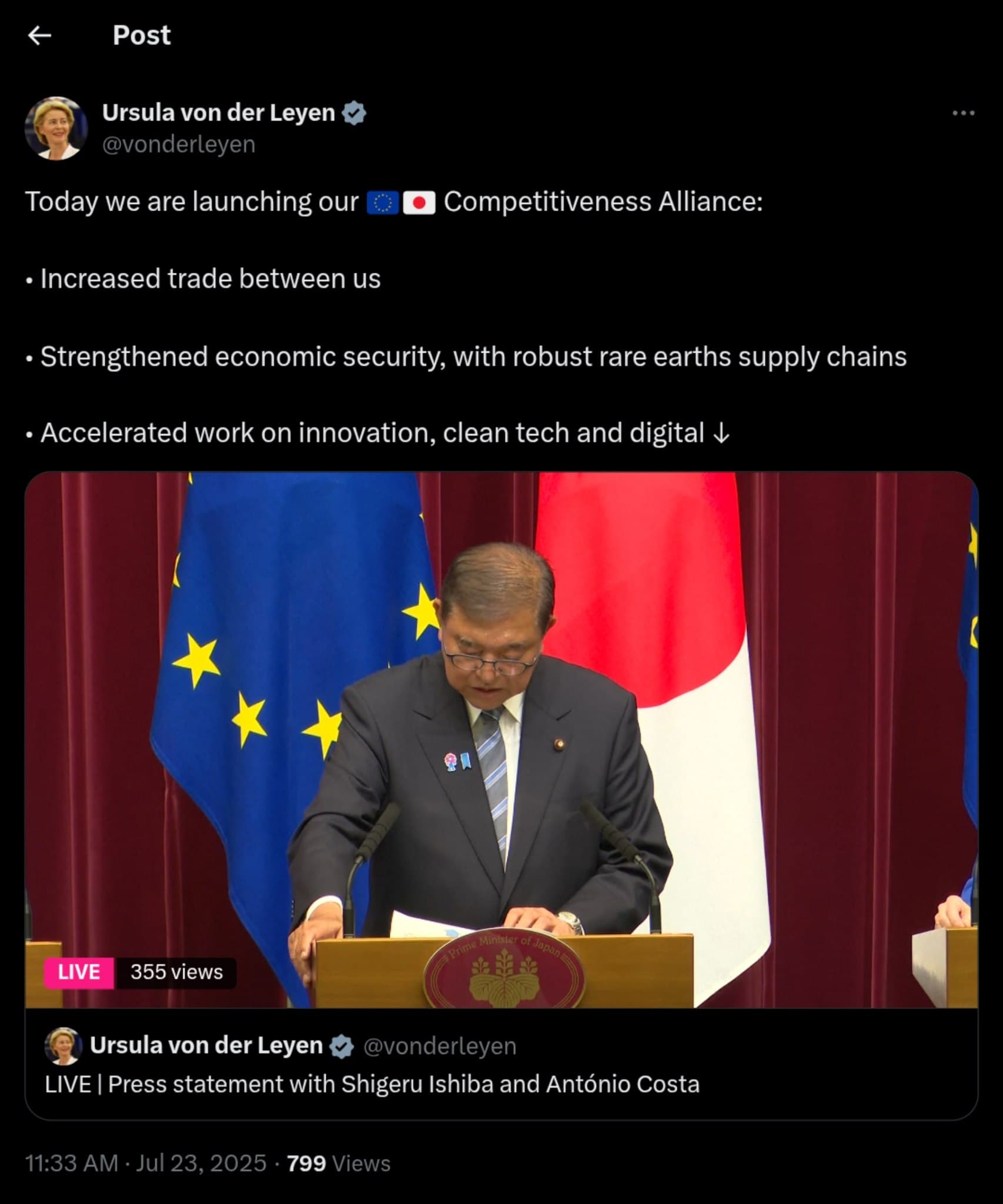EU and Japan Forge Competitiveness Alliance to Boost Trade and Secure Rare Earths
In a significant move aimed at enhancing economic ties and ensuring resource security, European Commission President Ursula von der Leyen announced the launch of the EU-Japan Competitiveness Alliance on Wednesday. This strategic partnership seeks to bolster trade relations, fortify supply chains for rare earth elements, and accelerate collaborative efforts in innovation, clean technology, and digital advancements. The announcement, made during a press conference in Brussels, marks a pivotal step in reinforcing economic cooperation between two of the world"s leading economies.
The Competitiveness Alliance comes at a time when both the European Union and Japan are navigating complex global economic landscapes characterized by supply chain vulnerabilities, geopolitical tensions, and the pressing need for sustainable development. Rare earth elements, essential for various high-tech applications such as electric vehicles and renewable energy technologies, have become a focal point in discussions about economic security. By collaborating closely on these resources, the EU and Japan aim to reduce dependency on single suppliers, particularly in the context of China"s dominance in the rare earth market.
President von der Leyen emphasized the importance of this alliance, stating, "Through increased trade and strengthened economic security, we are laying the foundation for a more resilient future." She highlighted that both regions share common values and goals, particularly in their commitment to innovation and sustainability. This partnership will not only facilitate the exchange of goods and services but will also foster joint research initiatives and technological developments that can lead to breakthroughs in clean technology and digital solutions.
The implications of this alliance are manifold. Experts suggest that the partnership could serve as a counterbalance to growing economic nationalism and protectionism witnessed in various parts of the world. By deepening trade ties, the EU and Japan can set a precedent for multilateral cooperation, showcasing how strategic alliances can yield mutual benefits. Historically, similar alliances have been instrumental in driving economic growth and stability, as seen in the post-World War II era when nations collaborated to rebuild their economies and promote peace. The current alliance may well echo those earlier efforts, particularly in the face of challenges posed by climate change and technological disruption.
The impact of the Competitiveness Alliance is poised to reverberate across multiple sectors, particularly in clean technology and digital innovation. As both regions prioritize sustainability, investments in research and development are expected to surge, leading to the creation of green jobs and the advancement of eco-friendly technologies. Furthermore, the strengthened supply chains for rare earth elements could alleviate concerns regarding supply shortages, which have been exacerbated by geopolitical tensions and the COVID-19 pandemic. This initiative not only aims to enhance economic resilience but also addresses broader environmental goals, aligning with global efforts to combat climate change.
Looking ahead, the EU-Japan Competitiveness Alliance signals a proactive approach to economic collaboration in an increasingly interconnected world. As both parties work together to navigate challenges and seize opportunities, the potential for growth and innovation appears promising. Stakeholders in both regions are encouraged to remain engaged and informed about the developments stemming from this partnership, as it could reshape the economic landscape in the coming years. As previously reported, similar situations have unfolded in other parts of the world, highlighting the importance of strategic alliances in fostering economic stability and security.







![[Video] Gunfire between Iraqi security forces and Sadr militias in Baghdad](/_next/image?url=%2Fapi%2Fimage%2Fthumbnails%2Fthumbnail-1768343508874-4redb-thumbnail.jpg&w=3840&q=75)
